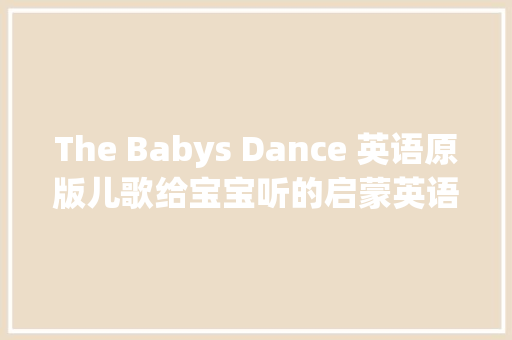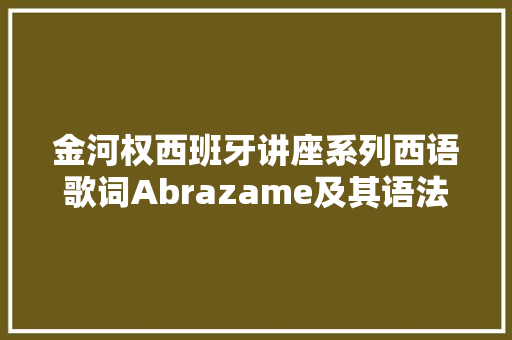【本单元词汇】
▲ guitar, dance, sing, paint, drum, violin, rock, draw, swim, chess, speak, piano

▲ then, show, may, little, address, kid, Sunday, e-mail, why, join, our
【词汇解析】
(1)join v. 参加,加入
它是短暂性动词,不能和一段韶光连用,后加组织名称或人称代词。
◆ join the army / Party / football team 参军/入党/加入足球队
He wants to join the music club.
She joins us for dinner.
◆ join in 参加,加入某种活动
May I join in your conversation?
(2)swim
◆ v. 拍浮
swimmer 拍浮者 go swimming 去拍浮
Can you swim?
◆ n. 拍浮
have a swim 拍浮
Let’s have a swim.
(3)show
◆ n. 演出,演出
school show 学校演出
TV show 电视节目
talk show 发言节目
talent show 才艺演出
on show 正在展出
All the paintings are on show in the museum.
◆ v. 出示,展示
Please show your ID card. 请出示你的身份证。
show sb. sth. = show sth. to sb.
I’ll show you my new drum. 我将给你看我的新鼓。
(4)little
◆ adj. 作定语,小的,少的
my little cat 我的小猫
a little bird 小鸟
My little daughter is only ten months old. 我年幼的小女儿只有10个月大。
◆ 润色不可数名词,少量的,不多的,表否定意义。
There’s little water in the bottle. 瓶子里险些没有水。
I have little time for reading. 我没有多少韶光看书。
◆ a little 润色不可数名词,少量的,少许,表肯定意义。
I need a little help. 我须要一点帮助。
There’s a little milk in the glass. 杯子里有点牛奶。
◆ a little 用作副词,有些,有几分。
I’m a little tired. 我有点累了。
【回顾】a little / little / a few / few
a little
润色不可数名词
表示肯定
There is a little milk in the cup.
little
表示否定
We have to go to the supermarket. There is little meat in the refrigerator.
a few
润色可数名词
表示肯定
She has a few friends.
few
表示否定
That girl is so selfish that she has few friends.
(5)wanted for 多用于广告……招收,须要……
◆ “for” 后跟招收单位或组织,活动;
◆ “wanted” 前写招收的工具;
Actors wanted for School Day. 校庆招收演员。
2. 重点短语
a little少许,少量
go swimming去拍浮
be good with待某人好,与某人相处融洽
speak English 讲英语
play the guitar 弹吉他
play the drums 敲鼓
play the violin 拉小提琴
play the trumpet 吹喇叭
play chess 下棋
rock band 摇滚乐队
join the music club 加入音乐俱乐部
e-mail address 电子邮件地址
3. 重点句型
(1)What club do you want to join? 你想加入什么俱乐部?
◆ what+n 什么……
What time is it now? 现在几点了。
What color do you like? 你喜好什么颜色?
What kind of car do you want to buy?你想买什么样的车?
What sports do you like? 你喜好什么运动?
(2)Are you good with kids? 你与孩子们相处得好吗?
◆ be good with = be friendly with 与……相处得得好。
He’s good with me. 他和我相处得很好。
◆ be good to 对某人友好
My teacher is good to us all. 我的老师对我们都很友好。
◆ be good at 善于……
He is good at math. 他善于数学。
I am good at swimming. 我善于拍浮。
◆ goodadj. 用来润色名词或作表语。
well adv. 用来润色动词或形容词。
He is a good student. 他是一个好学生。
He can’t play the guitar well. 他弹不好吉他。
【注】well 也可以用作形容词,指“身体康健”。
(3)Can you help kids with swimming? 你能帮孩子们学拍浮吗?
◆ help sb. with sth. 帮助某人某事
Tom often helps me with my English. 汤姆常帮我学习英语。
◆ help sb. (to) do sth. 帮助某人做某事
Maria often helps her mother do the housework.玛丽亚常常帮助母亲做家务。
(4)Why do you want to join the club? 你为什么想加入这个俱乐部?
◆ why 为什么 常回答用because 勾引的句子
---Why do you want to join the music club? 你为什么想加入音乐俱乐部?
---Because I like music. 由于我喜好音乐。
(5)Then you can be in our school music festival. 那么你可以参加我校的音乐节。
◆ in 成为……的成员,参加be in = join
---Which sport are you in today? 你本日参加哪项运动?
---Long jump. 跳远。
(6)May I know your name? 我可以知道你的名字吗?
4. 日常交际用语
① ---Can you dance?
---Yes, I can. / No, I can’t.
② ---What club do you want to join?
---I want to join the basketball club.
③ Are you good with kids?
④ Come and join us!
⑤ ---What can you do?
---I can do Chinese kung fu.
Step2语法归纳
【情态动词】在英文中紧张用来表示说话人的意见,态度等,从用法上它有这样几个特点:
(1)各个情态动词自身都有一定的意义。
(2)情态动词不能在句子中独立担当谓语。
(3)情态动词在句子中不受人称和数变革的影响。
(4)情态动词后(除ought to)接动词原形。
英文中的情态动词有can, could, may, might, must, need, dare, ought等。
(1)can 的用法
◆ 表示能力
She can sing that song in English. 她能用英文唱那首歌。
I can make dumplings. 我会包饺子。
◆ 表示要求或容许。
Can you help me? 你能帮帮我吗?
Can I see your ID card? 我能看看你的身份证吗?
◆ 用于否定句或疑问句,表示推测或可能性。
Today is Sunday. He can’t be at school. 本日是星期日,他不会在学校。
Can this blue sweater be Wang Lin’s? 这件蓝色毛衣可能是王琳的吗?
① 情态动词can切实其实定句变否定句在can 后加not,can’t
I can speak English. → I can’t speak English.
② can 放于句首,构成一样平常疑问句。若问句讯问能力,可以回答:Yes, … can. 或No, … can’t.
---Can she dance?
---Yes, she can. / No, she can’t.
③ 若是表示要求的问句,我们可以回答:OK. / All right. / Sorry, …
---Can I use your pen?
---All right. Here you are.
---Sorry, but I don’t have one.
(2)may 的用法
◆ 表示要乞降许可,有“可以”的意思,与can相同,比can更加口语化。
May I go now? 我可以走了吗?
May I watch TV after supper? 晚饭后我可以看电视吗?
◆ 表示可能性,或许,可能。
He may be English. 他可能是英国人。
They may have a lot of work to do. 他们可能有很多事情要做。
◆ 用来表示祝愿。
May you succeed! 祝你成功!
① 回答以may 开头的一样平常疑问句,肯定回答:Yes, you may / can. 否定回答:No, you can’t / mustn’t.
---May I come in?
---Yes, you can / may.
② 有时为避免利用may,以免显得太严厉,或不太客气。
---May I come in?
---Yes, please. / Certainly. / Sure.









